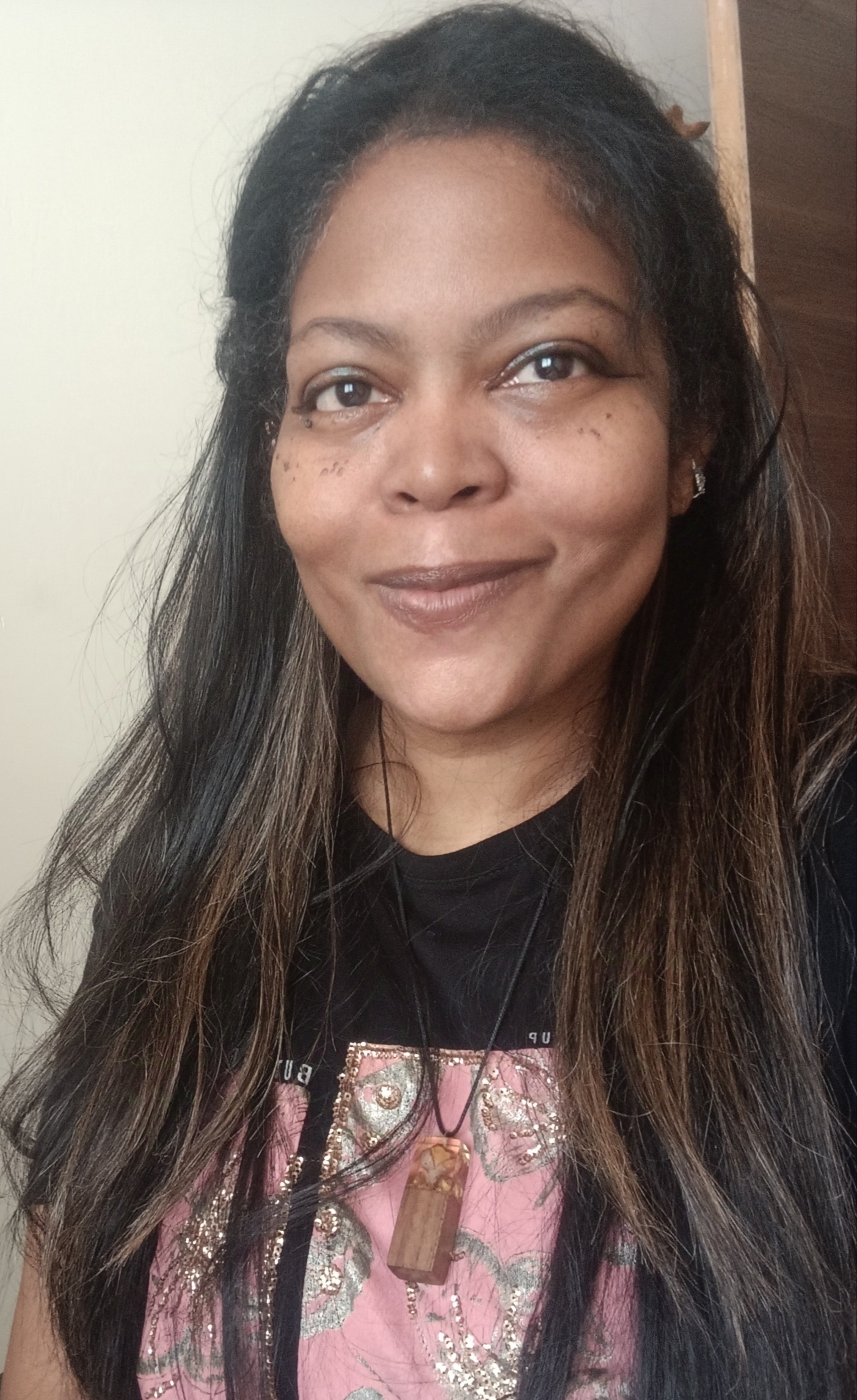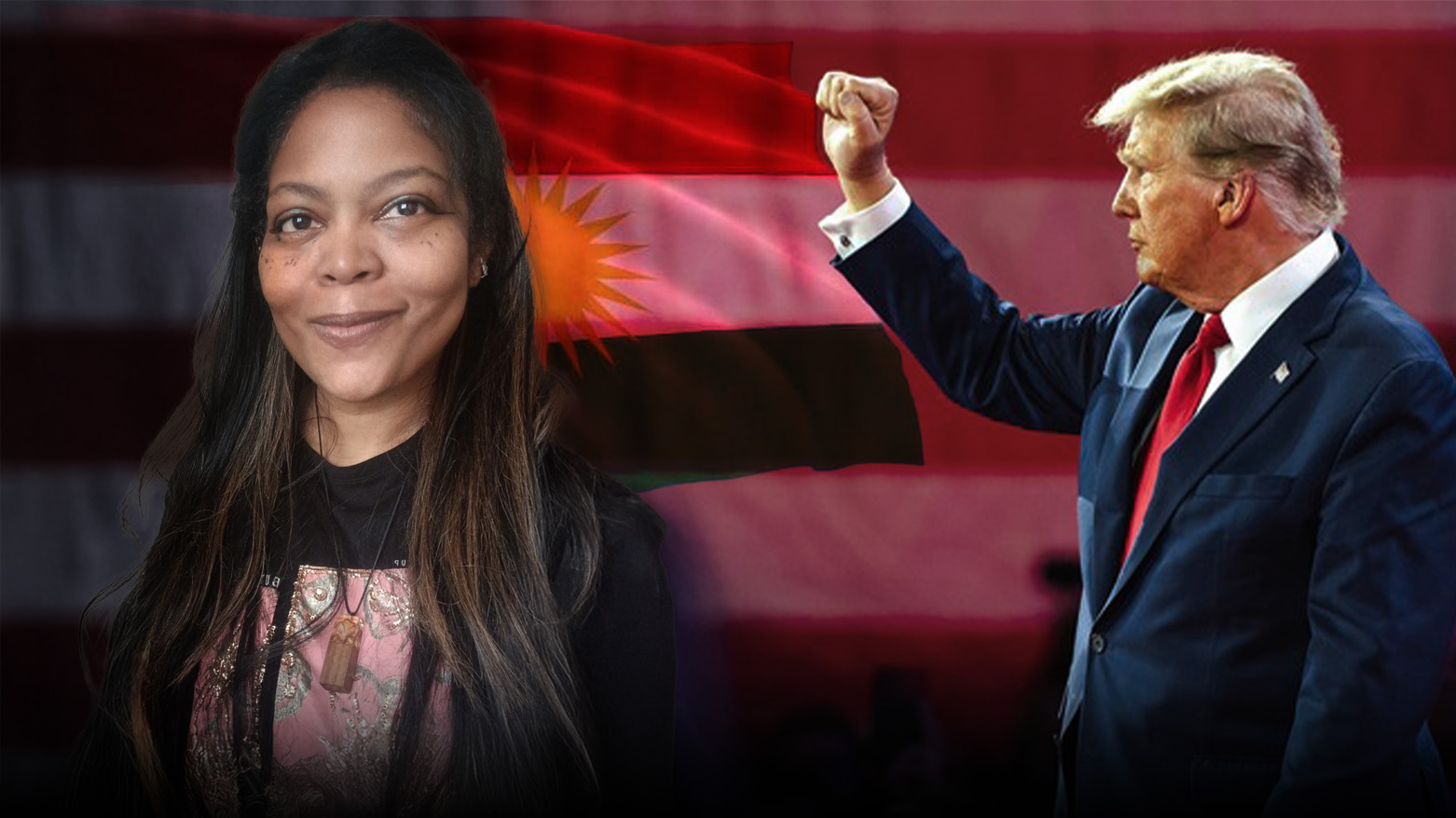
Ava Anne Blair
Researcher and Linguistics Instructor
PRESIDENT TRUMP’S GOLDEN AGE: The Inclusion of the Kurdish State of Affairs
"I regard the Kurds as the lions of the Middle East for one cannot forget how they were the first to bravely stand against ISIS, hence helping global security in doing so."

With the advent of President Trump’s administration has arrived a plethora of positive changes on both domestic and global fronts, from enhancing the United States’ border security and his support towards bolstering intra-country petroleum production to establishing worthwhile foreign relationships, i.e. recent discussions with Japanese Prime Minister Shigeru Ishiba, negotiating Japan importing US liquefied natural gas. Indeed, President Trump’s initial weeks as the 47th President have proven laudable and proactive.
Yet, it would be remiss of me as an American - who has resided amid my Kurdish brethren for nearly six years - to not likewise ponder how the Kurdish can factor into President Trump’s “golden age,” as well. In his acclaimed inaugural speech, President Trump pronounced that “the golden age of America begins right now.” Indeed, it is my sincere thought that supporting the Kurds via fostering stable security for them should be incorporated into such a golden age. I regard the Kurds as the lions of the Middle East for one cannot forget how they were the first to bravely stand against ISIS, hence helping global security in doing so. President Trump recently appointed former Senator Marc Rubio to the position of Secretary of State. He has an extensive history of being a positive figure in Kurdish-US alliances. Political figures who possess a similar mindset toward Kurdish affairs could potentially assist in the progression of goals in the Kurdistan Region.
Presently, my concern for the Kurdish-populated areas in northern Syria, known as (Rojava) has heightened due to worrisome circumstances that are occurring there. With the incumbent new leadership in Syria, deserved skepticism has arisen in areas, such as Afrin and Aleppo, where the presence of Syrian security forces has become a constant. Reports of violence and harassment have plagued many. I, as well, have received anecdotal reports of what’s occurring via Kurdish friends and acquaintances who are actively residing in Rojava or have familial ties there.
Recently, Mazloum Abdi, the Syrian Democratic Forces (SDF) General Commander, expressed a desire for the US presence to remain for it has served in establishing stability. Out of intense concern and seeking to broaden my understanding of how tumultuous events are affecting the Kurds in Rojava, I recently corresponded with three of my Kurdish acquaintances who hail from varying backgrounds, requesting their perceptions regarding how the Trump administration could best assist the Kurds, in general.
Former Kurdish Diplomat, Mr. Barzan Ardalan, who is currently based in the U.S., stated, “The Kurdish demands in Rojava align with U.S. strategic interests. The administration should advocate for a reimagined Syria, built on a progressive constitution inspired by Iraq’s federal system rather than the outdated Syrian Arab Republic framework. Just as Syria’s flag has been changed, its name should evolve to reflect inclusivity, becoming the “Syrian Republic” rather than the Syrian Arabic Republic. Additionally, the Kurds in Rojava should be encouraged to draft their own constitution, drawing on their governance model and lessons from the draft of the Kurdistan Region of Iraq constitutional framework. Decentralized governance and Kurdish self-administration must be integral to any future Syrian peace agreements or constitutional arrangements.”
Regarding the Kurdistan Regional Government (KRG) and Rojava, Mr. Ardalan further stated, “For the Kurdistan Region of Iraq (KRI) and Rojava’s oil and gas sectors, the Trump administration via the U.S. International Development Finance Corporation (DFC) should provide investment incentives like political risk insurance and financing and special guarantees for investments, and provide them with grants, subsidies, and technical assistance.”
He further continued, “U.S. support for stability and growth in the KRI and Rojava is not merely a matter of regional security; it reflects the advancement of U.S. values and interests in a region where they are respected and upheld. The Trump administration has the opportunity to reaffirm its commitment to an ally that has proven invaluable in combating terrorism and advancing American strategic objectives. The Kurdish people in these regions have made extraordinary sacrifices, aligning their values, interests, and policies with those of the United States.”
Contemplating how Afrin has been affected, I turned to an Afrin native, Mr. Mustafa Muhammad Khalil, who is one of the Kurdistan Democratic Party of Syria (KDPS) branch leaders and a respected journalist. His perceptions regarding military and logistical support were as follows, “Increased Arms and Equipment Supply: The Kurdish-led Syrian Democratic forces, primarily composed of the People’s Protection Units (YPG), were key U.S. allies in the fight against ISIS. Providing them with more advanced military equipment, including anti-tank weapons and air defense systems would have strengthened their defensive capabilities again.” Mr. Khalil also favored the Trump administration advocating “for Kurdish representation in UN-led peace talks to secure their political and security interests in a post-war Syria.” In addition, he believes “a no-fly zone over Rojava” which is overseen by the U.S. could prove beneficial, along with providing aid “for rebuilding infrastructure in war-torn Kurdish areas.” I found his desire to have the Trump administration fund “mental health and rehabilitation programs” for Kurdish fighters and civilians to be insightful since such programs typically are a rarity in the Kurdish region.
When considering Hasakeh, I spoke with Ms. Lava Ali, a respected Kurdish Civil Activist. Her deep concerns aligned with Mr. Khalil’s, further expressing the impact of the withdrawal of U.S. troops “from their positions in Kobani and Sere Kaniye in 2019.” She expressed concerns for the regions of Sere Kaniye and Tel Abyad. “Any new U.S. withdrawal from the region would place the SDF and the Kurds in a position where they will face significant challenges in terms of negotiating with the Islamic groups that have taken control of governance, or those armed factions still attacking the region… I believe that before making any decision to withdraw from Syria, the U.S. should ensure the safety of the SDF and the Kurds by facilitating their protection and supporting negotiations with the Syrian Interim Government to avoid military clashes in Rojava and to secure Kurdish rights in a new Syria.”
With an eye toward education, I asked Ms. Ali if the Trump administration could assist with education in Rojava, and she cited “In Rojava, the educational curricula related to the Autonomous Administration of North and East Syria (AANES) have been taught since 2015, and they have not been affected by recent events, except for the temporary closure of some government schools teaching the Syrian state’s curriculum in Qamishli and Hasakah, which resumed operations afterward. It is good that education can receive support first, such as creating schools and providing logistical support like a printing press for books, as well as providing experts to help improve the curricula. Washington could also play a role in encouraging the new Syrian government to recognize the educational curricula specific to Rojava.”
Her concluding remarks were, “The Kurds led the war against ISIS, and Rojava sacrificed over 20,000 martyrs in this war. Today, the U.S. is being asked not to abandon the Kurds before ensuring their security and rights, and not to repeat what happened in Afrin and Sere Kaniye… We hope that the U.S. will remain involved until agreements are reached between the SDF and the Syrian government that guarantee the rights and security of the Kurds.”
I wish to extend my sincere appreciation for the enlightened commentary expressed by the above Kurdish individuals, each of who possesses a lengthy history regarding the progression of the Kurdish journey towards development and raising awareness of the Kurdish region. While I have had my own perceptions, being aware of how native Kurds seek to pursue their goals throughout the Kurdish region is warranted and shall prove vital for the Trump administration.
My humble aspiration is to hopefully further acquaint relevant parties in the U.S. government and global community with the noble objectives throughout the Kurdish community. After all, the Kurdish proverb, “No friends but the mountains” is not one I wish to be echoed in the 21st century.
_______________________________
Sincere appreciation to all relevant parties at Kurdistan24 and to my dear Kurdish friends and acquaintances who have taught me much throughout the years I have resided in the Kurdistan Region. All opinions expressed by me, the author, are purely subjective and are in no way intended to be indicative of the exact perceptions of the U.S. government.